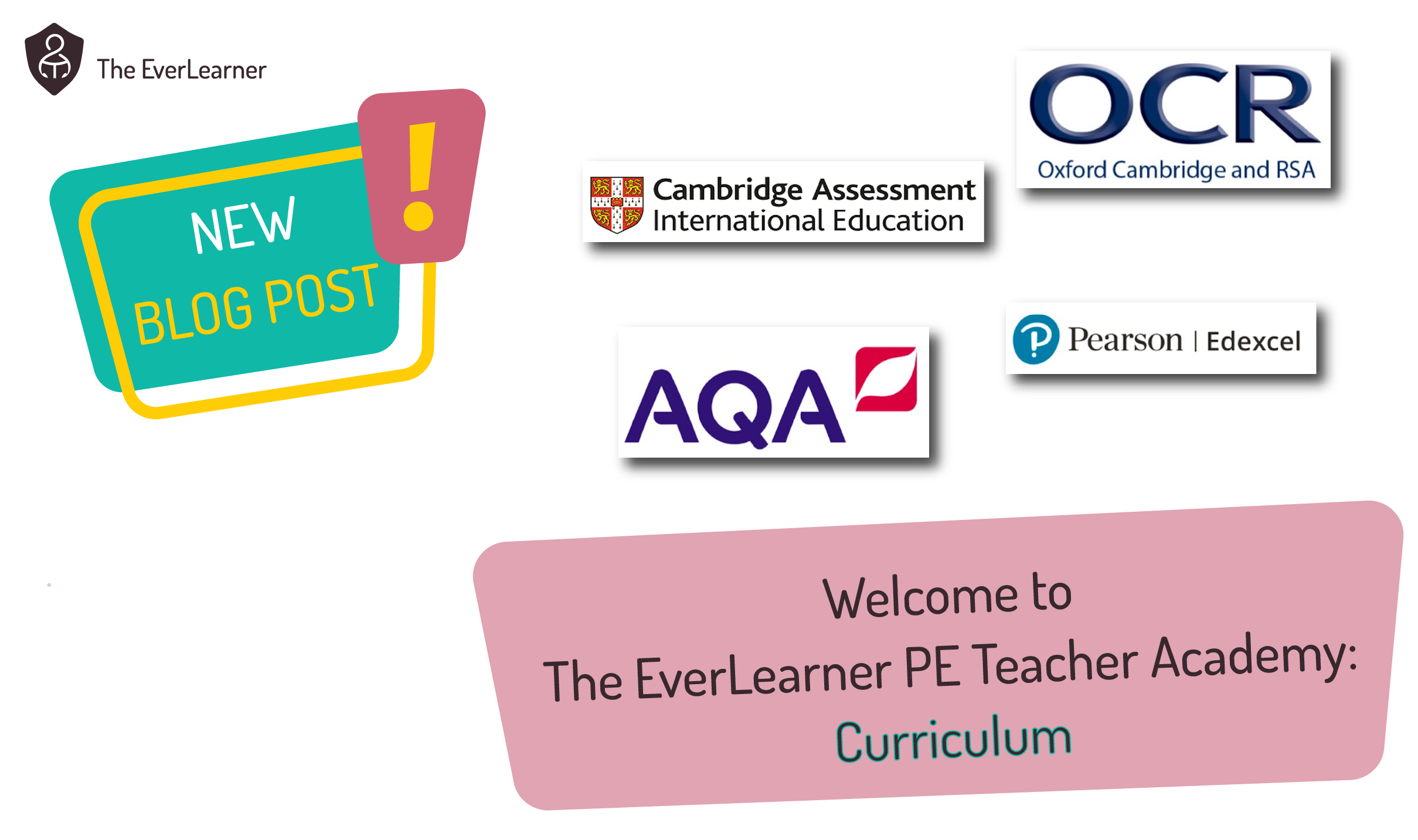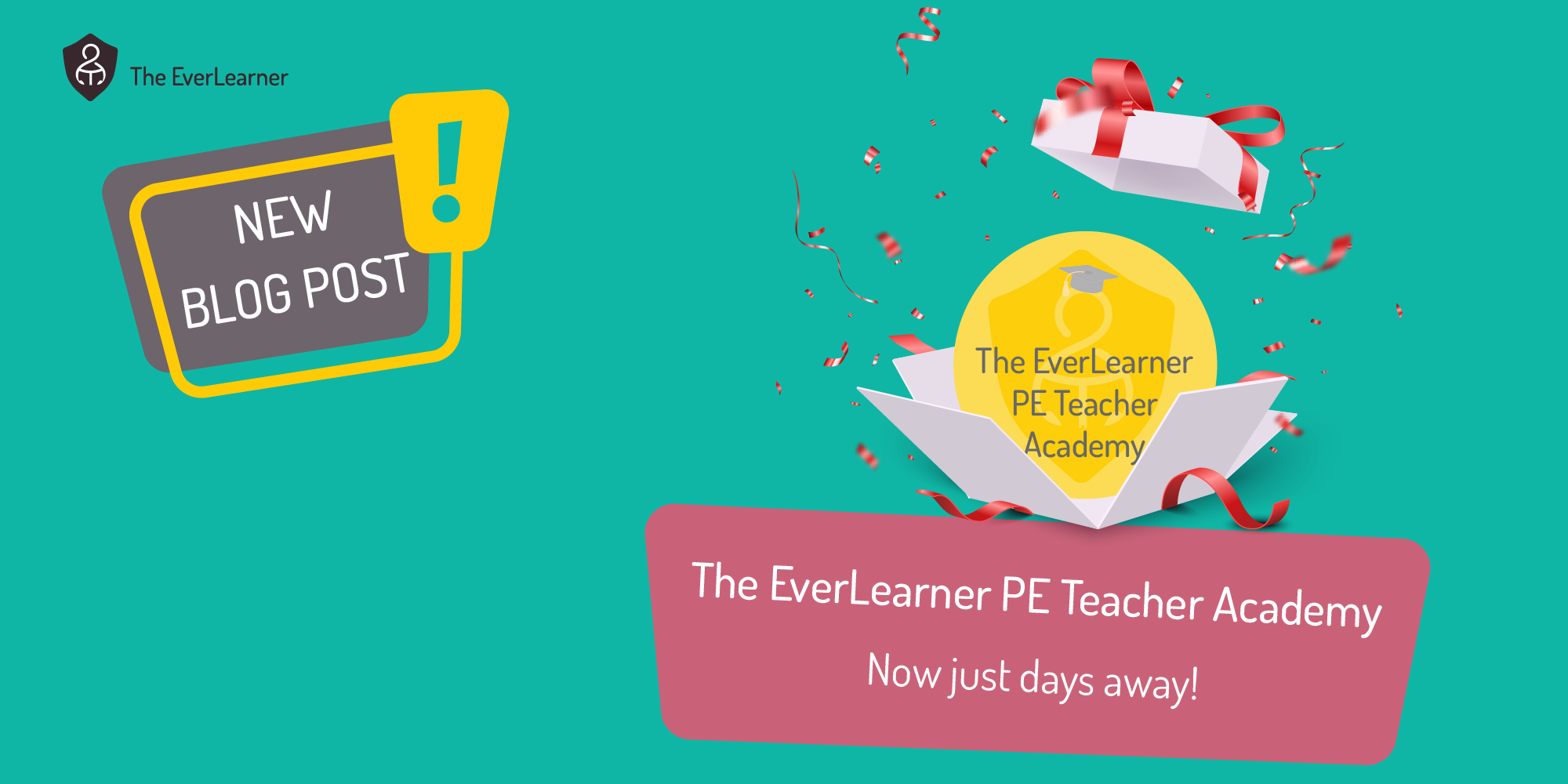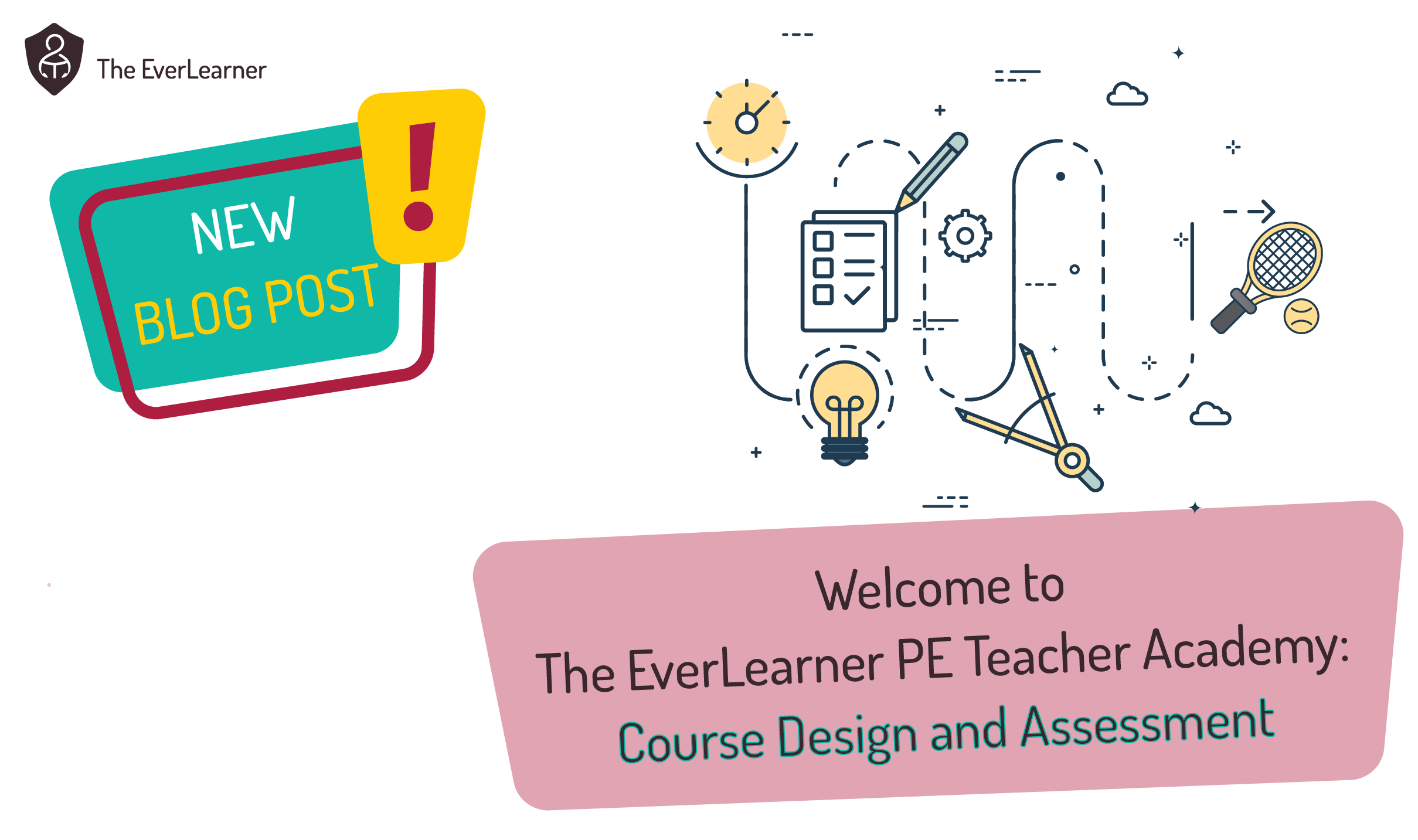A week on the road with The EverLearner: Delivering PE CPD and attending the FOBISIA PE and Sport Conference
Having the opportunity to speak to our teachers face-to-face is so valuable, and it was great to be able to discuss things and answer a few questions relating to the platform at the same time! The EverLearner team spent a lot of time over the summer months creating lots of new content and preparing for the launch of our PE Teacher Academy, so it was fantastic to be able to take this ‘on the road’ and receive some positive feedback on how this could be implemented to support teachers.
We learnt A LOT from our 14,000 mile round trip: not least, how to navigate one of the busiest land border crossings in the world between Singapore and Malaysia, and the (seriously long-lasting!) effects of jet lag when crossing 14 time zones in the space of a week! We learnt that it's vital to remember to pack several litres of water and a spare t-shirt when going anywhere in Malaysia and Singapore, and to be aware that some taxi drivers will drive the wrong way down a major road - don’t be afraid to tell them if they do (Google Maps is a lifesaver!) But for now, we’ll stick to the key takeaways related to PE and Sport…
- IBDP SEHS - the new specification is causing a few headaches!
- Reviewing learning is key to help promote new remembering
- Centralised assessments are going to dramatically improve student outcomes and teachers are excited to get using them!
- There is a ‘gap’ globally in PE-specific CPD - not any more!
- The annual FOBISIA PE and Sport Conference is a unique and marvellous event!
- “The price of excellence is discipline. The cost of mediocrity is disappointment.” (Adam Peaty OBE)
- Change is happening in female sport, but there is still work to be done in overcoming challenges - let’s change the narrative!
1. IBDP SEHS - the new specification is causing a few headaches!
One of the key discussion points was around the new IBDP SEHS specification and the difficulty teachers are having in accessing resources to support delivery, especially with regards to the limited number of practice exam questions available. With this in mind, we have added a range of Paper 2 exam questions across different sporting profiles. One of our main areas of focus for the team in the coming weeks and months will be the addition of Paper 1a multiple-choice questions and Paper 1b data analysis questions. This will provide IBDP teachers with even more access to relevant exam-style questions and enable students to have greater exposure to exam experiences in a range of contexts. For example, students may complete an online practice exam for homework, or complete a series of questions in lessons with a more collaborative focus, such as ‘pass the buck’.
One of the other topics of discussion with colleagues was around the need to link together areas of the course across different themes within IBDP SEHS, particularly during retrieval and as part of exam practice. With this in mind, we have now added an ‘all themes’ course on the platform, which allows teachers to set interleaved exams across themes as part of a blended learning approach. Our centralised assessment model for IBDP SEHS (more on this later) is coming soon and will provide teachers with ready-made, interleaved and editable assessments - watch this space!
2. Reviewing learning is key to help promote new remembering
Something that we are often asked by teachers, both in the UK and internationally, is how TheEverLearner.com can be used to maximise opportunities to enhance students' learning both inside and outside the classroom, and this was a huge focus for our sessions in Singapore and Malaysia.
One of the specific areas we discussed was based on Rosenshine's principles of instruction. When introducing new content, lessons should ALWAYS start with a short review of relevant previous learning. This is because ALL new learning is encoded to the long-term memory in association with previous learning. Take this example:
“Today, students will learn about respiratory values. What could a relevant short review task be?”
We looked at a possible review activity, shown in the image below, which focuses on the previously learnt topic of cardiac values:

Why is this relevant?
This 5-8 minute review, according to Rosenshine (more on this in our Teacher Academy), does the following:
✅ Opens the encoding channel for the new learning
✅ Allows students to recognise shared concepts between respiratory and cardiac values (volume, frequency, product)
✅ Causes a level of 'desirable difficulty' between potentially confusable concepts
✅ Preserves working memory when the new learning is introduced.
Therefore, students will better remember the new learning, and will be able to separate the concepts of cardiac values and respiratory values, thus freeing up space in the working memory for new learning to be introduced. It also means that valuable lesson time can be maximised for more difficult, applied concepts with the support of the teacher, and can therefore be supplemented or further reinforced by a post-lesson activity (such as a mastery quiz) to check students’ understanding.
Our FOBISIA workshop - ‘How to prevent your students from forgetting in the PE classroom and beyond’ - built further on this concept and incorporated 15 strategies that can be implemented by teachers to promote remembering and delay forgetting. Cognitive science is at the core of this, with the main focus of the workshop being the application of these strategies for us as PE and Sport teachers in the classroom. This promoted some great discussions between colleagues and sharing of good practice, while encouraging teachers to reflect on pre-, during and post-lesson opportunities to promote remembering for students.
One of my favourite parts of the workshops we delivered was the ‘Agreement Circles’ activity, where teachers reflected on and discussed a statement inspired by a keynote from earlier in the day - "The Enhanced Games will have a positive impact on sport."
This provoked some fascinating evaluative points, as well as further discussions around the facilitation and the practicalities of doing this activity with students in the classroom, prior to completing an extended-response question. (For more on this, see the blog on 'Questioning Techniques in the PE Classroom Part 2'.)
3. Centralised assessments are going to dramatically improve student outcomes and teachers are excited to get using them!
One of our brand-new features on the platform is the introduction of our centralised assessment model, which aims to:
✅ Improve the core assessment experiences of all PE students who use it by providing them with exams that are skill-focused and highly relevant to their external exams.
Take this example from AQA GCSE PE:


As shown in the images above, the assessments are deliberately interleaved, which means that teachers can spend less time on the mechanistic aspects of creating an exam paper, and more time on impactful marking and feedback specifically targeted towards individual students.
What we heard from speaking to teachers is that this is an area they wished they had more time to spend on. It was fantastic to hear the enthusiasm about how this would save teachers time, as people discussed how they could pick this up straight away and implement it as part of their own assessment model. This was further highlighted by the editable features of the core assessments, meaning that teachers can adapt them to suit their students and provide a range of exam experiences to increase student confidence and provide targeted and actionable feedback.
Subscribers of TheEverLearner.com with our silver subscription have access to this already, and more assessments are being added.
Our centralised assessment model is currently available for the following courses:
- AQA GCSE PE
- OCR GCSE PE
- Edexcel GCSE PE
- IGCSE PE 0413
- BTEC Tech Award in Sport Component 3
- Cambridge National Sport Studies R184
- AQA A-level PE
- OCR A-level PE
4. There is a ‘gap’ globally in PE-specific CPD - not anymore!
One of the key takeaways from our visit to Singapore and Malaysia was that the need for theory specific CPD is certainly not unique to the UK. Everyone that we spoke to recognises the ‘gap’ in PE-specific CPD and, more importantly, teachers are excited to learn these things!
Hopefully, you’ve read about the PE Teacher Academy in some of James’ previous blogs! For those of you who may have missed it, this is our mission:
“To radically improve the PE theory performance of all students and transform the PE teaching sector into the best-trained and highest-performing classroom teaching network in the world.”
At the time of writing, we have 27 courses available as part of the PE teacher Academy, spanning 5 different course areas:

Colleagues in Singapore and Malaysia shared their own experiences of PE CPD in schools and were excited to discuss how the PE Teacher Academy could be implemented into departmental time given over to continuous professional development.
5) The annual FOBISIA PE and Sport Conference is a unique and marvellous event!
The FOBISIA PE and Sport conference is an annual professional development event for Heads of PE, Sports Directors, and PE staff from the Federation of British International Schools in Asia (FOBISIA) member schools, providing a platform to share best practices, address common challenges, and foster collaboration within the region's PE and sports community. The conference takes place across 3 days and this year was attended by 200 PE and Sport teachers from 95 FOBISIA schools across Asia. 
This was a fantastic opportunity for us to deliver a workshop, meet lots of our teachers (we now have over 40 FOBISIA schools subscribed to TheEverLearner.com) and find out how we can best support teachers in the classroom.
There’s nothing better than teachers having the opportunity to get together, collaborate and discuss the amazing work they are doing, particularly over a 3-day period with dedicated focus time and a chance to opt for sessions relevant to their interests. It would be fantastic to set up something similar here in the UK… The EverLearner PE and Sport Conference, anyone?! We’re always looking for ways to support and grow the PE theory teaching community 🙂.
6) “The price of excellence is discipline. The cost of mediocrity is disappointment.” (Adam Peaty OBE)
Adam Peaty took us through the races that transformed his life and how he is striving to make swimming more accessible for young people with his company AP Race… as well as training for LA 2028! He spoke frankly about the psychological battles facing elite athletes, and explained that what we all see in the media through photos of success is rarely the ‘full story’.
It was really powerful to hear his story and how he is striving to make swimming more accessible for all through 'AP Race', supporting both recreational swimming and the journey towards elite level. This highlighted the work that is still to be done in breaking down barriers to improve opportunities for all children to have access to sport and physical activity, and to dispel the stereotypes that still exist across sport.
7) Change is happening in female sport, but there is still work to be done in overcoming challenges - let’s change the narrative!
Finally, Dr Emma Ross from Well HQ spoke candidly about changing the narrative around girls in sport, supporting girls and those around them to make informed decisions around PE and the power of starting these conversations. It was pretty shocking to hear that just 3% of women participate in organised team sports, highlighting the huge disparity between girls and boys. A recent article in The Guardian reported the benefits of girls playing sport after school. According to research, girls involved in after-school sport are 50% more likely to get top jobs. However, despite this, the article also highlights the many barriers still faced by girls, particularly the divide when it comes to team sports. As Emma explained, it’s not just about awareness of the female menstrual cycle*, it's about everything around this - from nutrition, to clothing, to facilities, to societal attitudes and beyond. Here at The EverLearner, we are hugely passionate about bridging the gap and promoting opportunities for girls in PE and Sport, and we are actively looking to help support this mission.*It’s really interesting to note that reproductive hormones and health, as well as RED-S (relative energy deficiency in sport) are both featured in the new IBDP SEHS specification. It would be great to see something similar in other examination courses to promote these conversations.
Final thoughts and what’s next…
So there we have it! Eight days, 14,000 miles, across 14 time zones, 7 sessions and workshops delivered… lots of reading done, hundreds of conversations held and countless reflections on how we can best continue to support PE and Sport teaching globally. So watch this space for future developments coming your way! And FOBISIA schools, thank you for having us - we look forward to seeing you again in Shanghai in 2026!
%20Text%20(Violet).png)


